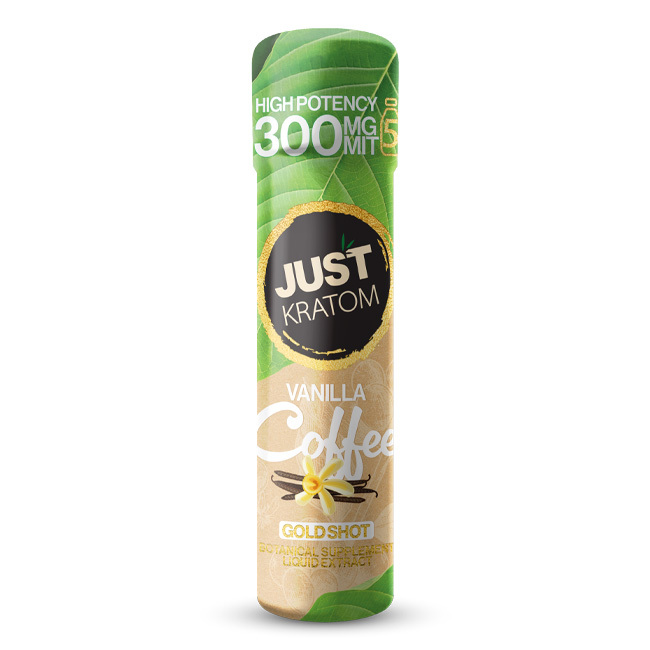Potential Benefits of Kratom for Sleep
Many individuals struggle with sleep problems, searching for natural solutions to improve their rest. Kratom, a plant native to Southeast Asia, has gained attention for its potential benefits, including promoting relaxation and improving sleep quality. Kratom contains alkaloids that may interact with opioid receptors in the brain, influencing mood and sleep patterns.
Impact on the Endocannabinoid System
Kratom’s potential benefits for sleep stem from its interaction with the body’s endocannabinoid system (ECS). The ECS is a complex network of receptors and neurotransmitters that regulate various physiological processes, including sleep-wake cycles.
Studies suggest that kratom alkaloids, particularly mitragynine and 7-hydroxymitragynine, may bind to opioid receptors in the brain. This binding can modulate the release of dopamine and serotonin, neurotransmitters involved in regulating mood, sleep, and pain perception.
- Improved Sleep Quality: Users report experiencing deeper, more restful sleep after consuming kratom.
- Reduced Insomnia: Kratom may help alleviate insomnia symptoms by promoting relaxation and reducing anxiety, making it easier to fall asleep.
- Increased Sleep Duration: Some individuals find that kratom helps them sleep for longer periods.
Regulation of Neurotransmitters
The potential benefits of kratom for sleep are linked to its interaction with the brain’s neurotransmitters. Kratom alkaloids, such as mitragynine and 7-hydroxymitragynine, have been found to bind to opioid receptors. This binding can influence the release of dopamine and serotonin, which play crucial roles in regulating mood, sleep cycles, and pain perception.
By modulating these neurotransmitters, kratom may contribute to improved sleep quality, reduced insomnia, and increased sleep duration.
Relaxation and Stress Reduction
Kratom’s potential benefits for sleep are attributed to its interaction with the brain’s opioid receptors.
These receptors play a role in regulating mood, pain perception, and sleep patterns.
When kratom alkaloids bind to these receptors, they can influence the release of neurotransmitters like dopamine and serotonin, which are involved in promoting relaxation and sleepiness.
Mechanism of Action in Gold Shots
Kratom’s potential benefits for sleep stem from its interaction with the body’s opioid receptors. These receptors play a crucial role in regulating mood, pain perception, and sleep patterns. When kratom alkaloids bind to these receptors, they can influence the release of neurotransmitters like dopamine and serotonin, which are involved in promoting relaxation and sleepiness.
Absorption Rate
Kratom’s mechanism of action in relation to sleep enhancement is believed to involve its interaction with opioid receptors in the brain. Kratom alkaloids, particularly mitragynine and 7-hydroxymitragynine, have a high affinity for these receptors.
When these alkaloids bind to opioid receptors, they modulate the release of neurotransmitters such as dopamine and serotonin. Dopamine is associated with feelings of pleasure and reward, while serotonin plays a role in regulating mood, sleep, and appetite. The modulation of these neurotransmitters contributes to the potential relaxation and sleep-promoting effects of kratom.
The absorption rate of kratom gold shots can vary depending on factors such as individual metabolism, consumption method (oral vs. sublingual), and the specific formulation. Generally, kratom is absorbed relatively quickly, with peak plasma concentrations reached within 1-2 hours after ingestion.
Active Compounds
Kratom’s potential sleep benefits are linked to its interaction with opioid receptors in the brain. These receptors play a role in regulating mood, pain perception, and sleep patterns. When kratom alkaloids bind to these receptors, they can influence the release of neurotransmitters like dopamine and serotonin, which are involved in promoting relaxation and sleepiness.
Kratom’s mechanism of action in relation to sleep enhancement is believed to involve its interaction with opioid receptors in the brain. Kratom alkaloids, particularly mitragynine and 7-hydroxymitragynine, have a high affinity for these receptors. When these alkaloids bind to opioid receptors, they modulate the release of neurotransmitters such as dopamine and serotonin. Dopamine is associated with feelings of pleasure and reward, while serotonin plays a role in regulating mood, sleep, and appetite.
Studies and Research on Kratom for Sleep
Research into kratom’s effects on sleep is ongoing, with studies exploring its potential to improve sleep quality, reduce insomnia symptoms, and increase sleep duration.
Human Studies
Research on the effects of kratom on sleep is still relatively limited and more research is needed to fully understand its potential benefits and risks.
- Preliminary studies suggest that kratom may promote relaxation and improve sleep quality in some individuals.
- However, these studies are often small and have methodological limitations.
- Larger, well-controlled clinical trials are needed to confirm these findings and determine the optimal dosage and administration method for improving sleep with kratom.
It’s important to note that kratom can have potential side effects and risks, such as nausea, dizziness, constipation, and dependence.
Individuals considering using kratom for sleep should consult with a healthcare professional to discuss potential benefits and risks and determine if it is appropriate for them.
Animal Studies
Animal studies have been conducted to explore the effects of kratom on various physiological processes, including sleep. Some research suggests that kratom alkaloids may exhibit sedative-like effects in animal models.
For example, studies in rats have shown that kratom administration can induce sleep and reduce wakefulness. These findings support the anecdotal reports from human users who claim kratom improves their sleep quality.
However, it is important to note that animal studies do not always directly translate to human responses.
Further research involving human participants is necessary to fully understand the potential benefits and risks of using kratom for sleep purposes.
Dosage Considerations
Studies on kratom and sleep are ongoing, but preliminary research suggests potential benefits. Some studies indicate that kratom may promote relaxation and improve sleep quality in some individuals. However, these studies often have limitations such as small sample sizes or methodological challenges. Larger, well-controlled clinical trials are necessary to confirm these findings and establish the optimal dosage and administration method for improving sleep with kratom.
Dosage considerations for kratom are crucial, as effects can vary significantly depending on factors like individual metabolism, consumption method, and the specific strain or preparation. Typical starting doses for sleep range from 2 to 5 grams of dried leaf material. It’s essential to start with a low dose and gradually increase it until desired effects are achieved, monitoring carefully for any adverse reactions.
It’s important to emphasize that kratom can have potential side effects and risks, including nausea, dizziness, constipation, and dependence. Individuals considering using kratom for sleep should consult with a healthcare professional to discuss potential benefits and risks and determine if it is an appropriate treatment option.
Potential Risks and Side Effects of Kratom
While kratom shows promise for improving sleep quality, it’s important to be aware of potential risks and side effects. These can include nausea, dizziness, constipation, and dependence. Long-term use may lead to tolerance and withdrawal symptoms. It’s crucial to consult with a healthcare professional before using kratom, especially if you have pre-existing medical conditions or are taking other medications.
Tolerance and Dependence
Kratom’s potential benefits for sleep come from its interaction with opioid receptors in the brain. These receptors play a role in regulating mood, pain perception, and sleep patterns. When kratom alkaloids bind to these receptors, they can influence the release of neurotransmitters like dopamine and serotonin, which are involved in promoting relaxation and sleepiness.
However, it’s important to note that kratom can have potential side effects and risks. These include nausea, dizziness, constipation, and dependence. Long-term use may lead to tolerance, meaning higher doses are needed to achieve the same effect. Withdrawal symptoms can occur when kratom use is stopped abruptly.

Individuals considering using kratom for sleep should consult with a healthcare professional to discuss potential benefits and risks and determine if it is an appropriate treatment option for them.
Gastrointestinal Issues

Kratom, despite its potential benefits, can cause gastrointestinal issues. Some common side effects include nausea, vomiting, diarrhea, and stomach cramps. These adverse effects are often dose-dependent and may be more pronounced in individuals who are not accustomed to consuming kratom.
The mechanism behind these gastrointestinal symptoms is not fully understood, but it may involve the interaction of kratom alkaloids with digestive processes or alterations in gut motility.
If you experience gastrointestinal discomfort after consuming kratom, consider reducing your dosage or consulting a healthcare professional for advice.
Interactions with Medications
Kratom can interact with various medications, potentially leading to adverse effects. It’s crucial to consult a doctor before using kratom if you are taking any medications, especially those that affect the central nervous system, such as:
- Opioid painkillers: Kratom’s opioid-like effects can amplify the effects of opioids, increasing the risk of overdose and other serious side effects.
- Sedatives or tranquilizers: Combining kratom with these medications can lead to excessive drowsiness, respiratory depression, and impaired coordination.
- Antidepressants: Kratom may interact with certain antidepressants, potentially altering their effectiveness or increasing the risk of serotonin syndrome, a potentially life-threatening condition.
- Blood thinners: There is limited information on kratom’s potential interactions with blood thinners, but it’s best to avoid combining them due to the possibility of increased bleeding risks.
It’s essential to be aware that this list is not exhaustive and other medications may also interact with kratom. Thoroughly discuss your medication use with a healthcare professional before considering kratom for any purpose.
Recommendations and Precautions for Use
Kratom, an herb native to Southeast Asia, has gained attention for its potential to improve sleep quality. Studies suggest that kratom’s interaction with the brain’s opioid receptors may influence neurotransmitters involved in regulating mood, sleep cycles, and pain perception. While some users report experiencing deeper, more restful sleep after consuming kratom, it is important to note that research on kratom and sleep is still ongoing.
Due to potential side effects and risks associated with kratom use, including nausea, dizziness, constipation, and dependence, consulting with a healthcare professional before using kratom for sleep or any other purpose is crucial.
Consultation with a Healthcare Professional
Kratom’s potential benefits for sleep are linked to its interaction with opioid receptors in the brain. These receptors play a role in regulating mood, pain perception, and sleep patterns. When kratom alkaloids bind to these receptors, they can influence the release of neurotransmitters like dopamine and serotonin, which are involved in promoting relaxation and sleepiness.
However, it’s important to note that kratom can have potential side effects and risks. These include nausea, dizziness, constipation, and dependence. Long-term use may lead to tolerance, meaning higher doses are needed to achieve the same effect. Withdrawal symptoms can occur when kratom use is stopped abruptly.
Individuals considering using kratom for sleep should consult with a healthcare professional to discuss potential benefits and risks and determine if it is an appropriate treatment option for them.
- Consultation with a Healthcare Professional: It is essential to consult with a healthcare professional before using kratom, especially if you have any underlying medical conditions or are taking other medications.
- Dosage Considerations: Kratom’s effects can vary depending on individual factors such as metabolism and consumption method. Starting with a low dose and gradually increasing it under the guidance of a healthcare professional is recommended.
- Potential Side Effects: Be aware of potential side effects such as nausea, dizziness, constipation, and dependence.
- Drug Interactions: Kratom can interact with various medications, including opioids, sedatives, antidepressants, and blood thinners. Inform your healthcare provider about all medications you are taking.
- Long-Term Use Risks:** Long-term kratom use may lead to tolerance and withdrawal symptoms. It is crucial to monitor for potential adverse effects and seek medical advice if any concerns arise.
Starting Dose and Gradual Increase
Recommendations for using kratom for sleep include starting with a low dose, gradually increasing it as needed, and monitoring for side effects. It’s essential to consult with a healthcare professional before using kratom, especially if you have any underlying medical conditions or are taking other medications.
A typical starting dose for sleep can range from 2 to 5 grams of dried leaf material.
Kratom can interact with various medications, so it’s crucial to inform your healthcare provider about all the medications you take.
Potential side effects of kratom include nausea, dizziness, constipation, and dependence. Long-term use may lead to tolerance and withdrawal symptoms.
Monitoring for Side Effects
Recommendations for using kratom for sleep include starting with a low dose (typically 2-5 grams of dried leaf material), gradually increasing it as needed while monitoring for side effects, and consulting with a healthcare professional before use, especially if you have any medical conditions or take other medications. It’s important to be aware that kratom can interact with various medications, including opioids, sedatives, antidepressants, and blood thinners.
Potential side effects of kratom include nausea, dizziness, constipation, and dependence. Long-term use may lead to tolerance and withdrawal symptoms.
- Consultation: Always consult a healthcare professional before using kratom.
- Dosage Start Low: Begin with a low dose (2-5 grams of dried leaf material) and gradually increase as needed under medical guidance.
- Monitoring: Closely monitor for any side effects and discontinue use if they occur.
Avoiding Alcohol and Drug Combinations
It is important to note that kratom can have potential side effects and risks, including nausea, dizziness, constipation, and dependence. Individuals considering using kratom should consult with a healthcare professional to discuss potential benefits and risks and determine if it is appropriate for them.
Avoid combining kratom with alcohol or other drugs as this can increase the risk of adverse effects and interactions.
- Sculptra Surrey – Collagen Stimulation Therapy Near Bisley, Surrey - May 31, 2025
- Nasolabial Fold Fillers – Marionette Lines Near Tatsfield, Surrey - May 30, 2025
- The Dark Side Of Breadcrumbing And How To Break Free - May 30, 2025
